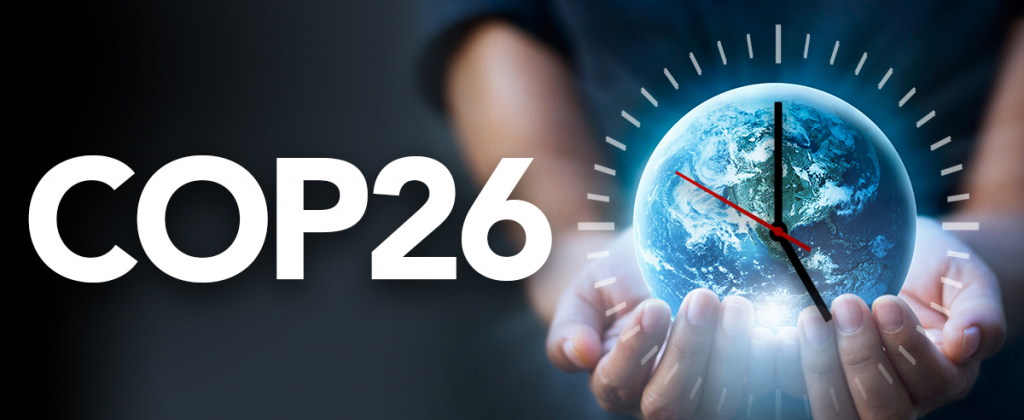COP26 calls time on our impact on the planet

How do we lessen our impact on the planet? … A big question, but one we can help answer.
It’s a question we’re all facing. One which connects and divides us. COP26 has powerfully reminded us of our individual and collective responsibility. We must act now, by calling time on our impact on the planet, in every way we can.
As a team, we have a ‘can-do’ attitude and love solving problems! So, here’s how Integrated Logistic Support (ILS) Engineering can help to reduce the negative impact of manufacturing on the planet.

Think about the future
When it comes to engineering products and programmes small changes can make a big difference.
Activities which cause the most damage to our environment tend to share one characteristic, that of short-term thinking. We take the opposite approach in ILS, IPS (Integrated Product Support) and Asset Management. We focus on considering, planning and managing the product from the design stage, throughout its useful life to end of life disposal.
Think of it as improving ‘productability’ in the widest sense – whether that’s availability, sustainability, durability, reliability, serviceability or maintainability.
We can’t continue to consume as if the earth’s resources were infinite. We can’t continue to consume in a way that has a potentially irreversible impact on our planet. Which is why all industries, not just Defence, are now tapping into ILS thinking to design more effectively for the future, not only of the product but of the planet.

Downtime and the planet
So, how does it work? Let’s consider equipment availability…
The ILS or IPS objective is to reduce the impacts of equipment downtime to a level that is acceptable for the user and operating organisation. Downtime is a catalyst for activity which impacts on our environment.
When it occurs the supply chain is engaged in the production, delivery and installation of any necessary replacement parts. Moving parts and skilled people requires ships, aircraft, lorries, delivery vans and forklifts – you get the picture! Also, downtime can result in the use of less efficient reversionary equipment, which will have a further negative impact.
So, improving availability of quality parts (location and number) can minimise downtime and be kinder to the environment.

Spares and inventory management
Similarly, you can tread a whole lot lighter with an efficient and well-thought through spares and inventory management approach.
Getting the spares calculations right is quite the science, combining expertise and experience. For us, it’s our bread and butter. Getting the analysis as close as possible cuts energy and material wastage, as well as reducing pollution from manufacturing unnecessary products.
Once manufactured items will need storage. Excessive spares storage consumes valuable resources, unnecessarily. Beyond the impact of transporting the spares to the storage location, you’ll need building materials, shelves and equipment to create and maintain optimum storage conditions, such as heating or cooling, lighting and humidity, even security. The financial impact of overproduction is almost a side issue when you start to consider the cost to our precious planet.
There’s a lot you can do to reduce waste when it comes to spares and inventory management. But it’s a careful balancing act between meeting requirements and managing risks. If you get it wrong, and underestimate spares requirements, then you increase downtime and potentially cause early product obsolescence.
However, get your calculations right, and spares conveniently located, and there’ll be much less wastage, including fewer trucks transporting spares from location to location. A better all-round result for the planet’s future.

ILS is good for the planet
So, ILS is good for the planet and if every engineering project followed its methods the planet will be saved… well, not quite!
While it is hard to find an ILS or IPS discipline, that when carried out well, doesn’t have a positive impact, we are still consuming.
ILS influences the engineering process to enhance ‘productability’, in the widest sense, and reduce unnecessary consumption. Any organisation invested in it, is by default reducing the negative weight of its global footprint.
Sometimes the discipline is criticised for being an ‘added’ expense. We disagree (as you would expect!). The issue often arises because the project or programme budget owner is not the one that benefits the most from the result. The fact is we all do.
We hope COP26 has got us all thinking about doing things differently. ILS can help, especially when it comes to engineering products fit for our future planet.
Find out how?
+44 (0) 1952 671950
info@qlsl.com
Get the latest from our blog…
Register for support engineering insights, direct to your mailbox,
and we promise to keep the ILS Tips coming.



